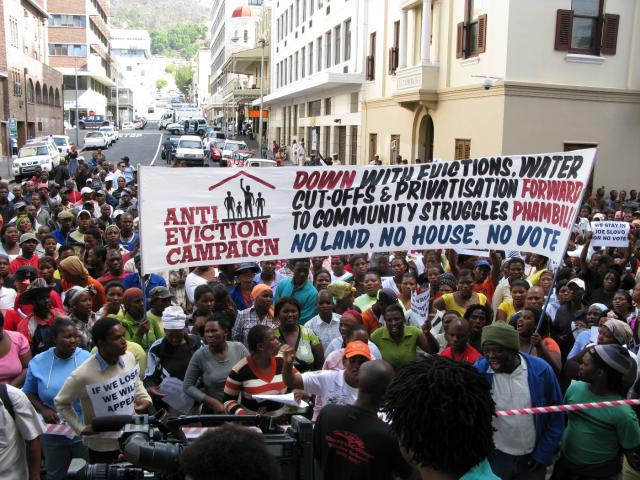With aid dwindling fast for the more than 300 destitute families squatting next to a Delft main road, the Anti-Eviction Campaign (AEC) has made an urgent appeal for food assistance, particularly for small children.
Available milk and bread was distributed to families, but it was not enough to provide nutritious meals for about 500 children, many of them babies, AEC leader Ashraf Cassiem said yesterday. The 346 families were among about 1 000 evicted from N2 Gateway houses they had illegally occupied.
“The situation is becoming more dire by the day and is aggravated by a shortage of water. Access to four water points was easy until a fence was erected and people got cut off. We have to ask a contracting company on a housing site to let us have some of their water.
“The children are our main concern. Any assistance such as vegetables, fruit and cereals will be welcomed. The situation is bad here, but we try very hard to make things as comfortable as possible. Adults are content, but it is their children they don’t want to see suffer.
“With schools closed for the holidays, we have programmes for children, but there are no resources. Anything will help,” Cassiem said and added that there were about 300 pupils, 60 toddlers and 48 babies.
Wheelchair-bound pensioner Maria Davids said: “We try to make a way for the children to eat before we worry about ourselves. Milk and bread is fine, but children need proper nutrition. We hope and pray all this suffering comes to and end and that we’ll get a proper house. Conditions are a bit better than at the time we were thrown out on the street, but I’m worried what will happen if the rain comes, because the canvas over our heads is full of holes.”
The AEC is to have a follow-up meeting on Wednesday with provincial housing authorities.
Cassiem said the meeting was to get the housing department’s confirmation that the families’ housing subsidy applications had been registered. “We met the department last Tuesday when it undertook to check the names we gave them with that on the list of housing company Thubelisha Homes,” Cassiem said.
Provincial housing department spokesman Vusi Tshose, said: “We did not want all those people to stand in the sun and wait, because it takes time to process more than 200 applications. We agreed that on Wednesday they will return, so that by then the department will be able to say whose subsidy applications had been registered and whose should still be registered.
“If it is found that they have applied for a subsidy, they will be treated the same as all other people who have applied and who are on a list.”
To donate, please click here.






 Stumble It!
Stumble It!